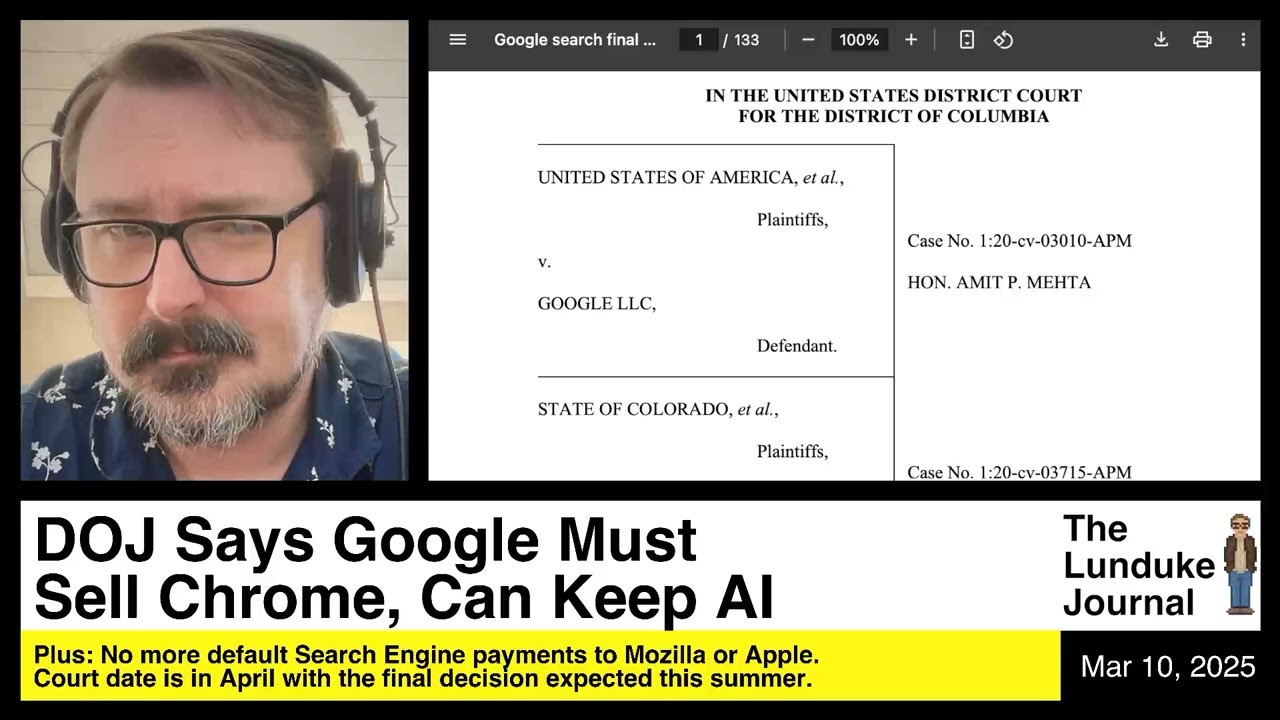The Department of Justice (DOJ) is pushing for Google to divest its Chrome browser as part of its antitrust case, while allowing the company to retain its AI operations. The revised proposal aims to enhance competition by prohibiting Google from making search-related payments to distribution partners, with a judge set to hear arguments in April before a final ruling is expected in the summer.
The Department of Justice (DOJ) is advancing its antitrust case against Google, following a judge’s ruling last summer that found Google to be a monopoly in the search engine market. The DOJ has proposed a revised final judgment that includes significant changes to Google’s operations. The initial proposal suggested breaking up Google by selling off its Chrome browser and AI divisions. However, Google’s response was to propose minimal changes, essentially suggesting that they would file additional paperwork instead of divesting any parts of the company.
The revised judgment from the DOJ maintains the core components of the initial proposal, particularly the prohibition on search-related payments to distribution partners, which have created barriers to competition. A key aspect of the new proposal is the requirement for Google to divest its Chrome browser, which is seen as a crucial access point for search services. This divestiture aims to foster competition by allowing new rivals to emerge without being hindered by Google’s monopoly control.
Interestingly, the DOJ has decided not to pursue the mandatory divestiture of Google’s AI investments, allowing the company to continue its development in that area with the condition of increased paperwork for future investments. This means that while Google must sell Chrome, it can maintain its AI operations without significant restrictions. Additionally, the DOJ is firm on preventing Google from paying other companies, like Mozilla and Apple, to make Google the default search engine in their browsers, which could have substantial financial implications for these companies.
Mozilla, in particular, relies heavily on revenue from Google for its operations, and the loss of this funding could threaten its viability. Apple also stands to be affected, as it receives significant payments from Google for being the default search engine in Safari, although its broader revenue streams may mitigate the impact. Google’s response to the DOJ’s proposals has been critical, arguing that the changes would harm consumers and the economy, although the connection to national security remains unclear.
As the case progresses, a judge will hear arguments from both the DOJ and Google in April, with a final ruling expected in the summer. The outcome could reshape the web browser and search engine landscape significantly. Google may also explore options to appeal the ruling, potentially delaying the implementation of any remedies. The situation remains fluid, and the next steps will be closely monitored as they could have lasting effects on competition in the tech industry.
